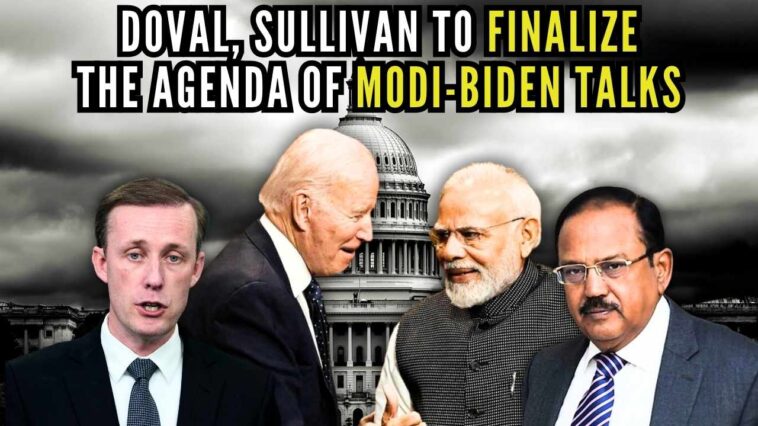US National Security Advisor Jake Sullivan will call on Prime Minister Narendra Modi today, as he meets with his Indian counterpart Ajit Doval to discuss future multifaceted bilateral cooperation, including a USD 2.7 billion semiconductor chip manufacturing facility in India by Idaho-based Micron Technology, the sharing of high-performance quantum computing technology, and the finalization of US aircraft engine manufacturing in India. Sullivan will also meet with Minister of External Affairs S Jaishankar.

Sullivan’s trip to India coincides with Prime Minister Modi’s state visit to the United States the following week, with both natural allies poised to advance bilateral cooperation to the next level. In the wake of increasing Chinese assertiveness over Taiwan and the South China Sea, the US NSA will also debate the situation in the Indo-Pacific, accompanied by US Indo-Pacific Coordinator at the National Security Council Kurt Campbell. The recent incident in which a Chinese warship made a hazardous and deliberate pass across the bows of a U.S. guided missile destroyer in the South China Sea has sparked significant concern among Quad nations.
It is believed that the Pentagon and NSA Sullivan have pressed the agenda to make PM Modi’s upcoming visit to the United States historic, while the US State Department bureaucracy, with its legacy from the past, resisted intensifying defense and high-tech cooperation with India. Even with their closest ally, the United States has never shared aircraft engine technology for fabrication in a third country, including “hot engine” technology. Despite the State Department’s efforts to create obstacles, the Pentagon and National Security Council under Sullivan have insured that India can manufacture the GE F-414 engine in its entirety. It is the same powerplant that will power the Indian Air Force’s backbone, the DRDO-designed and -developed Tejas Mark II fighter. India is also interested in acquiring high-tech ammunition, such as loiter bombs, air-to-air missiles, and long-range guided artillery bombs, from key US defense contractors.
While chipmakers such as Micron Technology have decided to invest in manufacturing in India, the Modi government is attempting to entice leading semiconductor chipmakers such as Intel Corporation to establish a global supply chain independent of China and Taiwan.
Both NSAs will also address the sharing of US technology with India on quantum computing for processing the billions of data collected across the country, as well as the protection of India’s critical infrastructure from cyber attacks by China and Pakistan.
ALSO READ :Sharad Pawar turns over Supriya Sule, Praful Patel NCP’s significant role, his nephew.
In addition, cooperation will expand in the domains of telecommunications, 6G technologies, rare earth metals mining, and space. During the meeting on initiative on Critical and Emerging Technologies (iCET) in Washington on January 31, 2023, the two NSAs covered all of the above grounds for cooperation, and last week’s first India-US Strategic Trade Dialogue meeting discussed the necessary rule amendments to translate these deals into reality.




